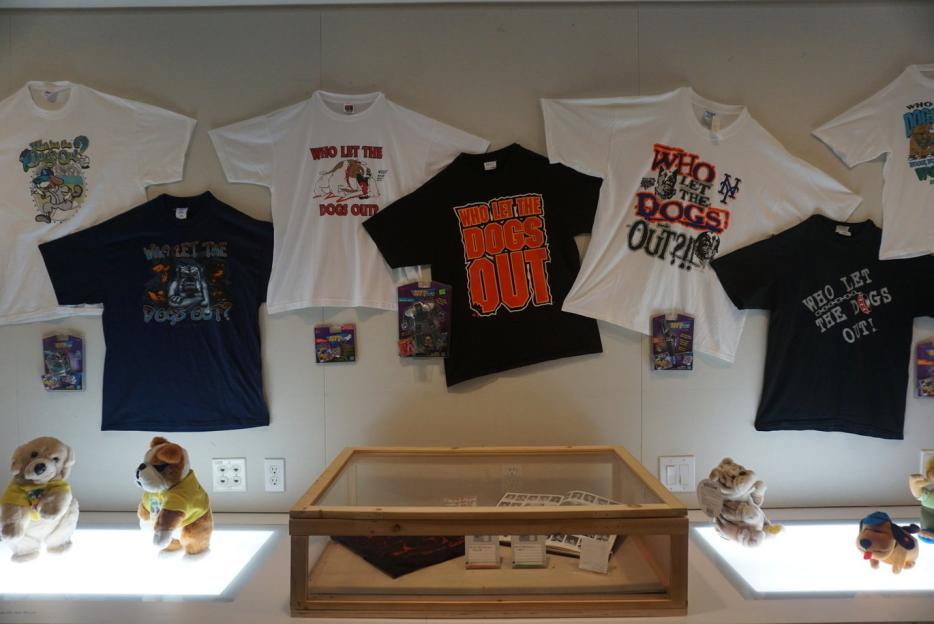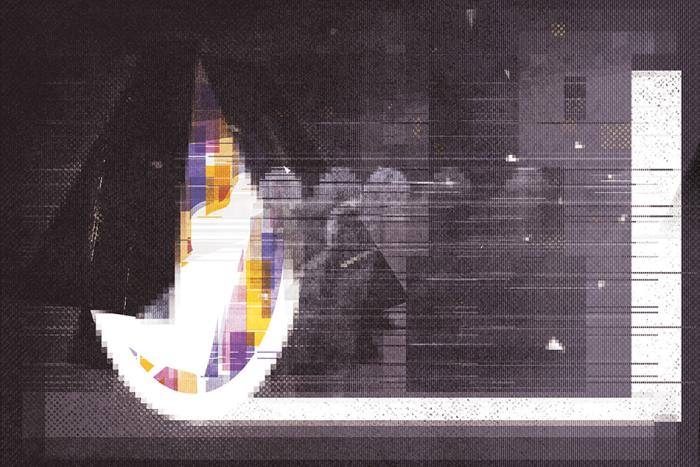Described as “terrible,” “annoying” and “one of the worst songs ever,” “Who Let The Dogs Out” recently celebrated its 15th anniversary. With its release in 2000, the single, and, most notably, the hook—a series of infectious barking sounds—helped the Baha Men transition from a relatively unknown band from Trinidad to a global phenomenon. Quickly becoming a popular anthem, the 2001 Grammy Award-winning song appeared in television commercials, Disney cartoons, and was a mainstay at sports events, even inspiring “The Dawg Pound Rock,” an, ahem, “interpretive” dance performed at football games.
Despite the withering response from music critics, “Who Let The Dogs Out” is reminiscent of the fun and frolic of Carnival, a boisterous and colorful parade and street party that is a mainstay in Trinidad. The gravitational pull towards the hook makes it a classic earworm: love it, hate it, or merely tolerate it, you can’t get out of your head. But its history, it turns out, is much more complex than the music-factory origins of most hit singles.
A decade after the song was released, Brooklyn-based artist Ben Sisto happened to come across its Wikipedia page, and it piqued his interest. The marketing manager, who produces arts programming for ACE Hotel’s New York City location, focuses his practice—seen also in 2014’s gallery exhibition, Used Books, and his Second Life film, 2009’s Duck Rotation—on reconfiguring previous works of art for open source reinterpretation. He applied that practice to the song, collecting archived materials and conducting a series of interviews with artists involved in both the original and remixed versions. His curiosity led him to curate an exhaustive website, released to the public on July 25, 2015. Who Let Who Let The Dogs Out Out chronicles his five-year exploration into the sample that would eventually become the single. It also serves as a useful educational tool and a cautionary tale for musical artists who are interested in sampling.
In his online project, Sisto delves into the song’s history and, in doing so, raises some interesting questions about feminism, sexism, and the social and legal implications of cultural and musical co-opting. By using “Who Let The Dog Out” as the focal point, he looks at what happens not only when originators aren’t acknowledged for their contributions, but when a sample is used in a way that radically alters its original meaning.
*
Laina Dawes: What inspired you to focus on this song?
Ben Sisto: I’ve always been interested in open source culture, free culture, and Wikipedia—the sharing of knowledge online. When I have free time, I spend a lot of it going through Wikipedia articles and end up going down wormholes, clicking on a link to see where I end up. There was this period of time where I was in between jobs, and I was going to the New York Public Library every day, and on one of these Wikipedia digs, I came across the entry for “Who Let the Dogs Out.” One of the first things I noticed—and the page has changed a bit since then—I can’t remember the exact quote, but it was something like, “This song was first recorded when performed live off a float during Carnival by ‘Keith from the salon Smile.’”
There was no citation, but that is how Wikipedia pages work. I like esoteric projects, so I decided to find out who Keith was, thinking that it would be something funny I could tell my friends who are into similar things. But when I talked to Keith on the phone, he was super nice and shocked that I called him up to talk about it. There was something about asking someone one little question and then having him or her give back more than what was expected that felt really good. It was just a cool feeling to gather knowledge that wasn’t publicly known. During our conversation he mentioned someone else’s name, so I thought, “I’m going to have to look that person up.” And it seemed that every time I looked someone up, there were two things that didn’t make sense, or two people would tell me stories that would contradict each other. I really started to obsess over this idea. Where did this song come from? Because it’s such an integral part of my youth and others in my generation. That’s how it started: vague interest in an esoteric way of learning stuff, and then it rabbit-holed.
On the site you pose the question: “Is this a feminist song?”
It depends on the version. From what I’ve researched to date, there are two potential origins. One of them originated from this group Miami Boom Productions from a demo called “The Two.” That is definitely not a feminist version. From the interviews I’ve done with them, they basically say, “We were teenagers. We wanted to make Miami Bass music and it seemed like the way to do that was to talk about how much ass we got.” There is a bravado that makes it more tongue-in-cheek. The version I traced the hook back to is performed by Sandra Gillette and 20 Fingers, and she also did the song “Short Dick Man.” That entire album is feminist, regardless if you like the song or not. I had a long conversation with one of the record’s producers, Manny Mohr, who specifically wanted to make a response to songs of that era, like “I Beat my Bitch with a Bat” and “Hoes in this House.” So her hook is, “Who Let Them Dogs Loose?”
Anslem Douglas’s [songwriter of the 1997 single “Doggie,” which was later recorded as “Who Let The Dogs Out”] version is also feminist in nature, as it was a response to the sexism that he observed in Trinidad around the time he first performed it. I haven’t interviewed him, so I can’t confirm his intention, but it must have been weird to hear later versions in which the meaning was so contextually different from his original intent. Douglas’s version of the song contained “Skettel”—Trinidadian slang for “whore”; it was used in Disney cartoons, as people never bothered to decipher what the lyrics really meant. The Baha Men version has this tone of, “I’m a dog, I’m coming for you,” which is performative behavior for the enjoyment of other men. In the other version by Chuck Smooth, who also claimed ownership of the original version, his song is 100 percent misogynist in tone.
You describe this project as a “living document.” Why not just write a book?
I wanted the ability to make corrections or additions in real time as new facts come to life. Instead of printing revisions and corrections, I’d rather, when people go to the site, the information is the most current. I guess I could have done it in some Wiki format that would make the corrections more transparent, but I like the contemporary style of the web templates, and wanted to make sure that if someone cites information on the site they are aware that there is potential for change.
The legalities surrounding the origins of “Who Let The Dogs Out” are a little confusing, but your project seems focused more on the popularization of the hook than the actual song.
The hook is really interesting to me because in relation to copyright law, it combines different parts of prior art that have commercial potential. If you just put out a song in which someone yelled “Who let the dogs out” with no barking sounds, people would be like, “Meh, there’s something missing.
All of the legal cases are centered on that idea. A Los Angeles court has just recently ruled that “Happy Birthday” is public domain. I’ve given previous talks about “Happy Birthday,” which is similar to “Who Let The Dogs Out” in that something new has arisen based on prior art, and people claim ownership of that prior art despite there being no paper trail. A lot of times in copyright cases, the big guys win because they have the money to go to court. If I have a case with Warner Music, they can just hold me up in litigation until I back off.
I don’t know if I’ll actually try to answer “who let the dogs out,” because contextually, in most versions of the song, “dogs” represent “men” and men, who have always been in power, have actually never been contained to begin with. Specifically in how the lyrics are presented, there has never been a point in history where these aggressors have been “let out.” They have just been there from the get-go, so it is not super interesting to me.
Is there a danger for the next generation of artists as far as not knowing the legalities surrounding appropriating art?
This is a case study, and based on your personal feelings on copyrights, it could serve as a warning or it could be positive. Personally I don’t believe in originality. And because of that, sampling is a really odd concept to me. I believe that cultural artifacts and things are always relational.
Obviously, you are sampling someone and they aren’t getting recognized or receiving royalties for their work—that is a valid argument for some people to make. For me, I just don’t have any desire to be held up in litigation. It’s not worth my time.
I like sharing this information, and have the luxury of a solid day job that doesn’t have to have anything to do with my art practice. For me, it’s easy to say about my project, “this is a public domain. Please share,” and it fits more in with my affinity with art as a gift in sharing economies. I wouldn’t say I’m worried about future generations. I think that it’s freeing that people are not obligated to know the history of everything.
My hope is that people use materials responsibly, I would just caution people—I’m not a journalist, but I would hope that people put out material that is respectful of everybody, as factual as possible.
What is your plan for the future of this project? There are so many layers to this story, and so much useful information for musicians on the legalities of copyright and sampling.
I would like to consult with editors, even people I’ve met over the years who edit books and magazines, to pick their brains to try to create a roadmap for verification—how to properly cite things, and then to do a sweep back to everyone I’ve talked to, to check in to see if there is anything else they would like to add to the project. Outside of emailing a few friends to let them know about this weird project I did, I’m not actively pursuing how to shape this into other formats right now.
During the time I’ve worked on this project, I’ve given public presentations at various venues in New York City, including at a law school. A lot of the archiving has been filtered through a very DIY setup in my house. I put a record down, take a picture, scan it and name the image. It definitely needs editors to go through to ensure that everything is documented correctly. I’d rather just see it out there, than not.






